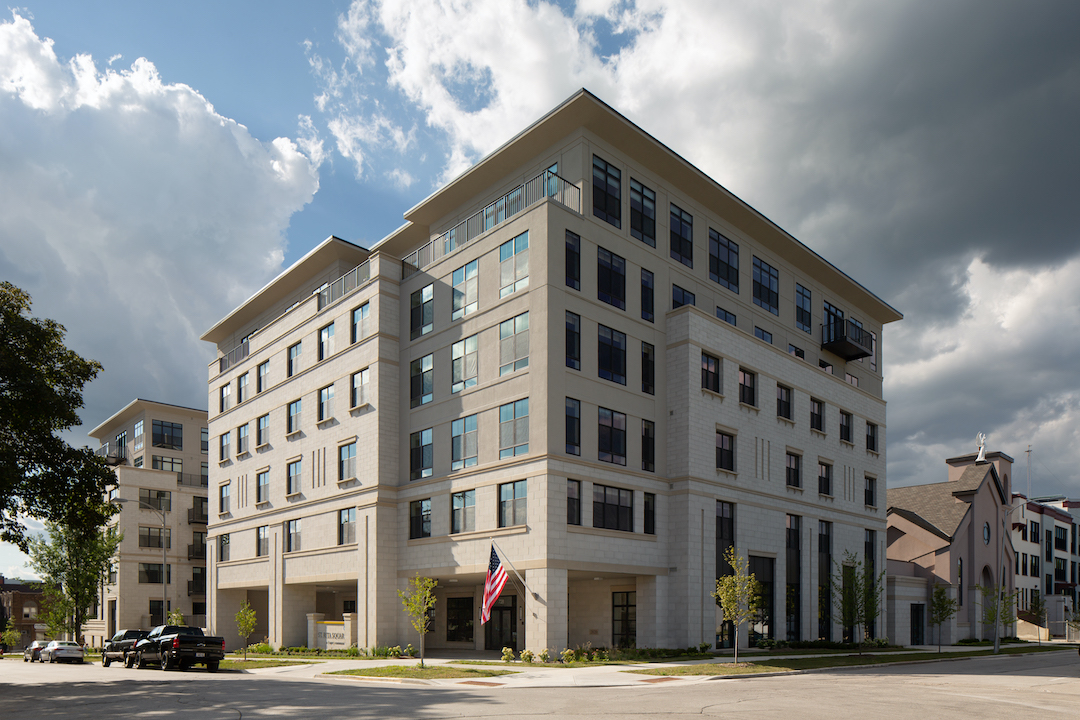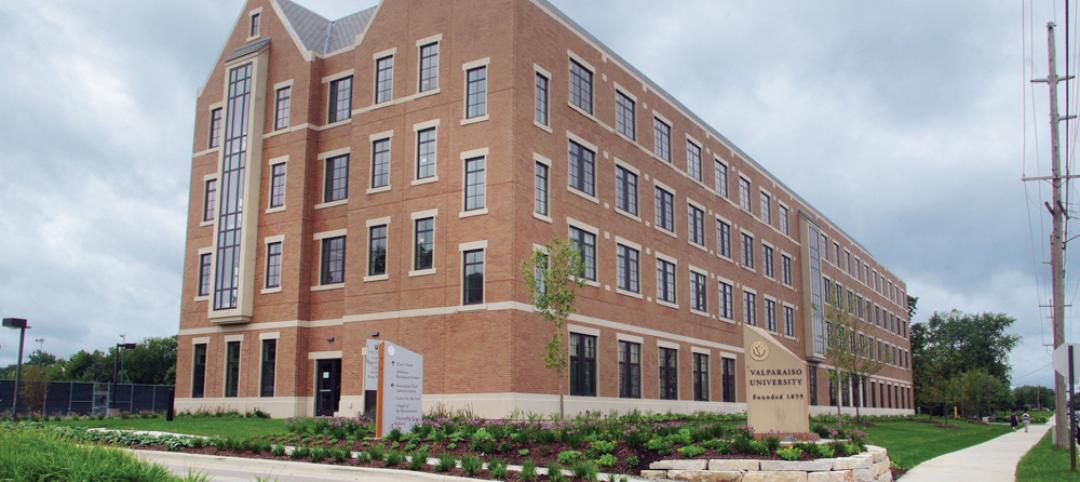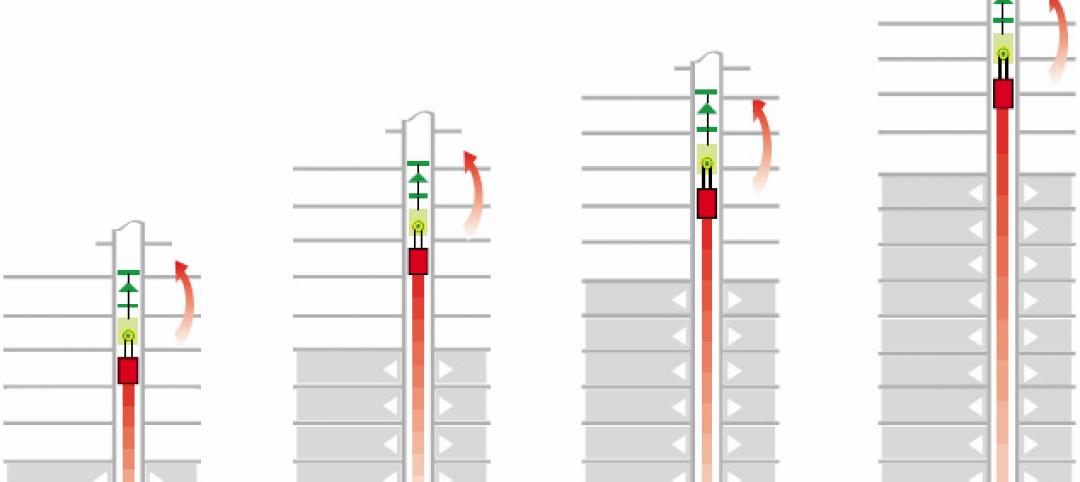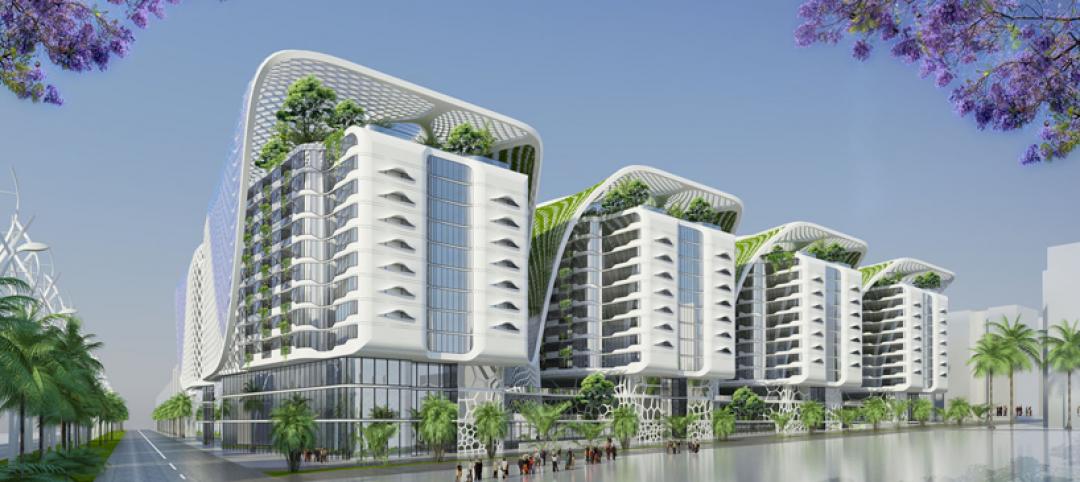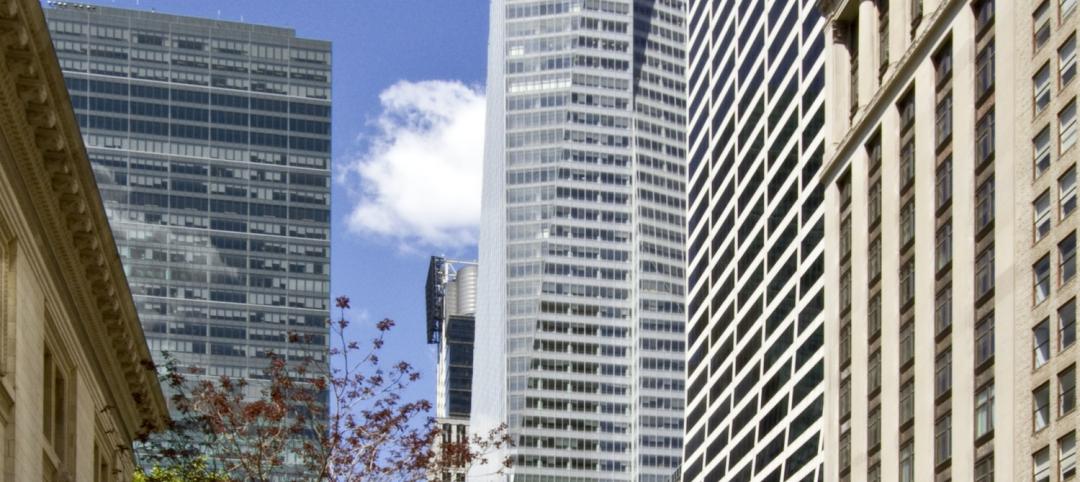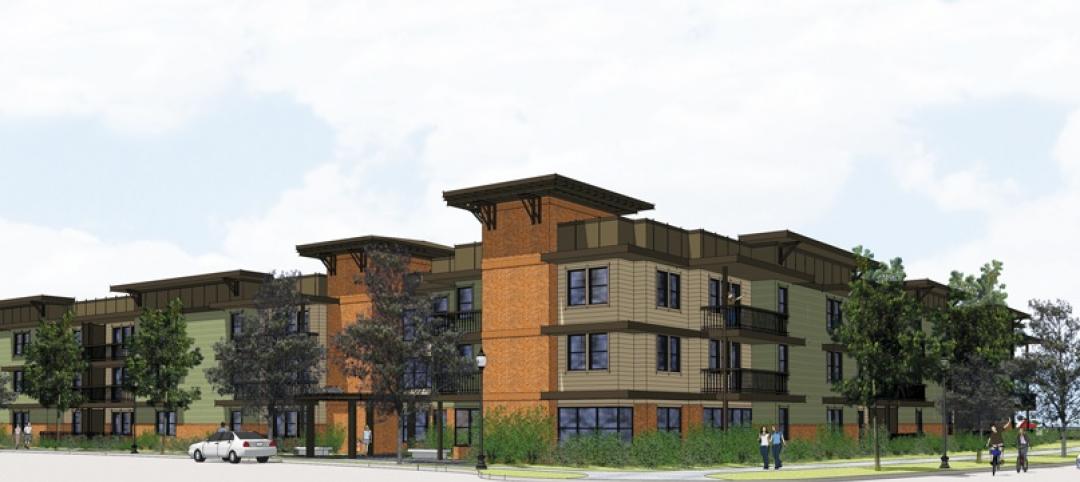A creative financing scheme was use to enable a senior living community in the historic Italian-American neighborhood of Milwaukee to pencil out.
St. Rita Square, a $28.9 million urban senior living apartment community on Milwaukee’s Lower East Side, continues Capri Communities’ mission of “enriching the lives of residents through service and commitment to family and community.” The company’s tagline, “Enjoy life,” is evident throughout the development.
Through a longstanding relationship with the Archdiocese of Milwaukee, Capri Senior Communities purchased the aging St. Rita Church campus, which included a vacant school and adjacent convent, for a dollar. In return, Capri agreed to build a new church along with a 118-unit senior living facility, and then sell the church back to the Catholic archdiocese for a dollar.
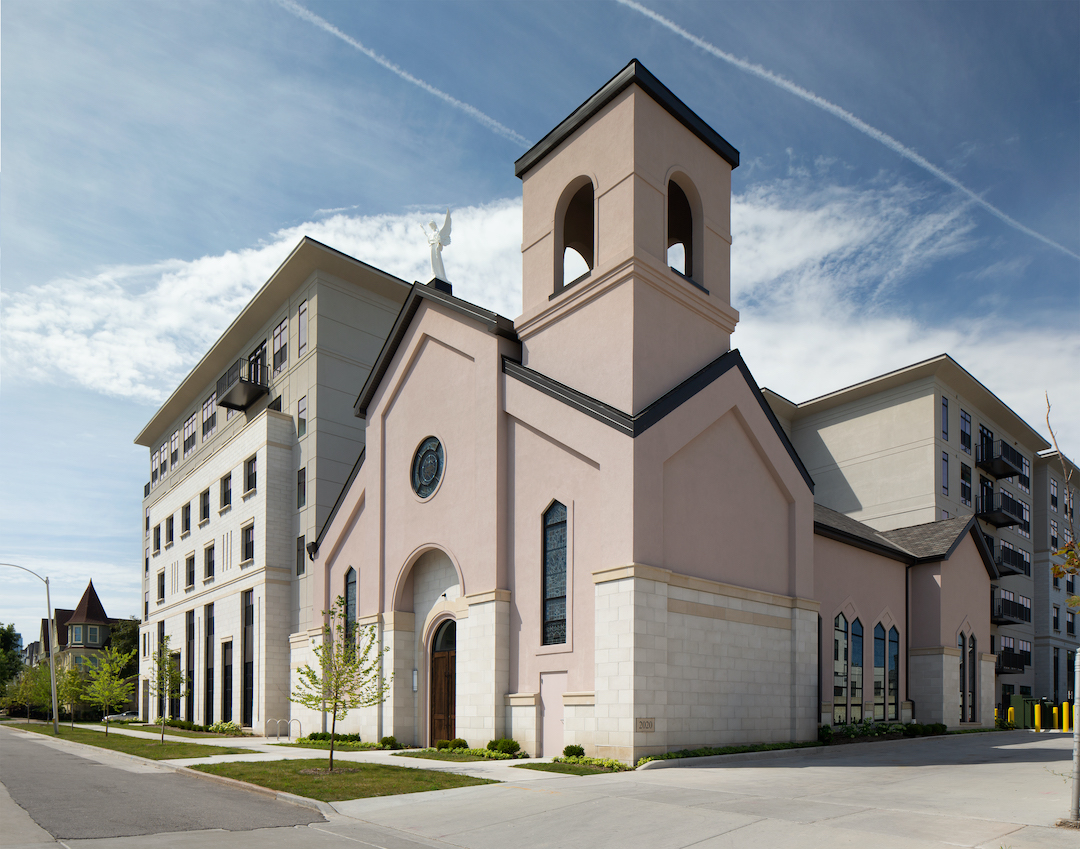
The restored bronze statue of the archangel Gabriel, by Italian artist Gaetano Trentanove (1858-1937), sits atop the new St. Rita Church in Milwaukee's Lower East Side. Photo: Tricia Shay Photography
DEEP ROOTS IN MILWAUKEE’S ITALIAN-AMERICAN COMMUNITY
St. Rita is deeply rooted in Milwaukee’s historic Italian-America neighborhood; many of its parishioners come from the Blessed Virgin of Pompeii Church, which closed more than 50 years ago. While the parish is thriving, the building had become costly to maintain and presented accessibility issues for the aging members of the congregation.
Led by local design firm AG Architecture, the project team looked to honor the past while forging into the future. The commitment to the community remained at the heart of the planning and approval process. By tearing down the existing church, school, and convent, along with two multitenant residential buildings, the site provided the space needed for 118 units of independent living, memory care, and assisted living.
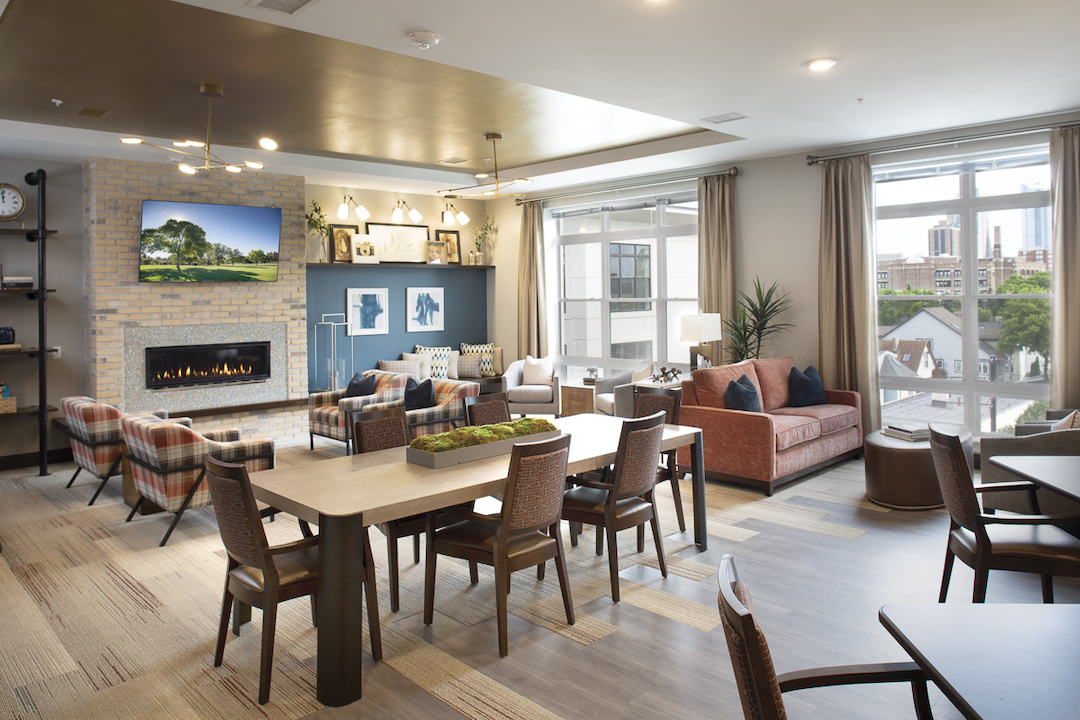
Community room at St. Rita Square. AG Architecture was the architect. Direct Supply Aptura did the interiors. Photo: Direct Supply Aptura
The design solution evolves Capri Communities’ successful senior living model by translating a horizontal suburban configuration into a vertical urban solution. The design and amenity offering pays tribute to the Italian heritage of the community within a modern environment.
Cherished artifacts, such as stained glass, stonework, the church sign, date stones, and a signature rose window, were incorporated into the design of the new church as well as throughout the senior living community.
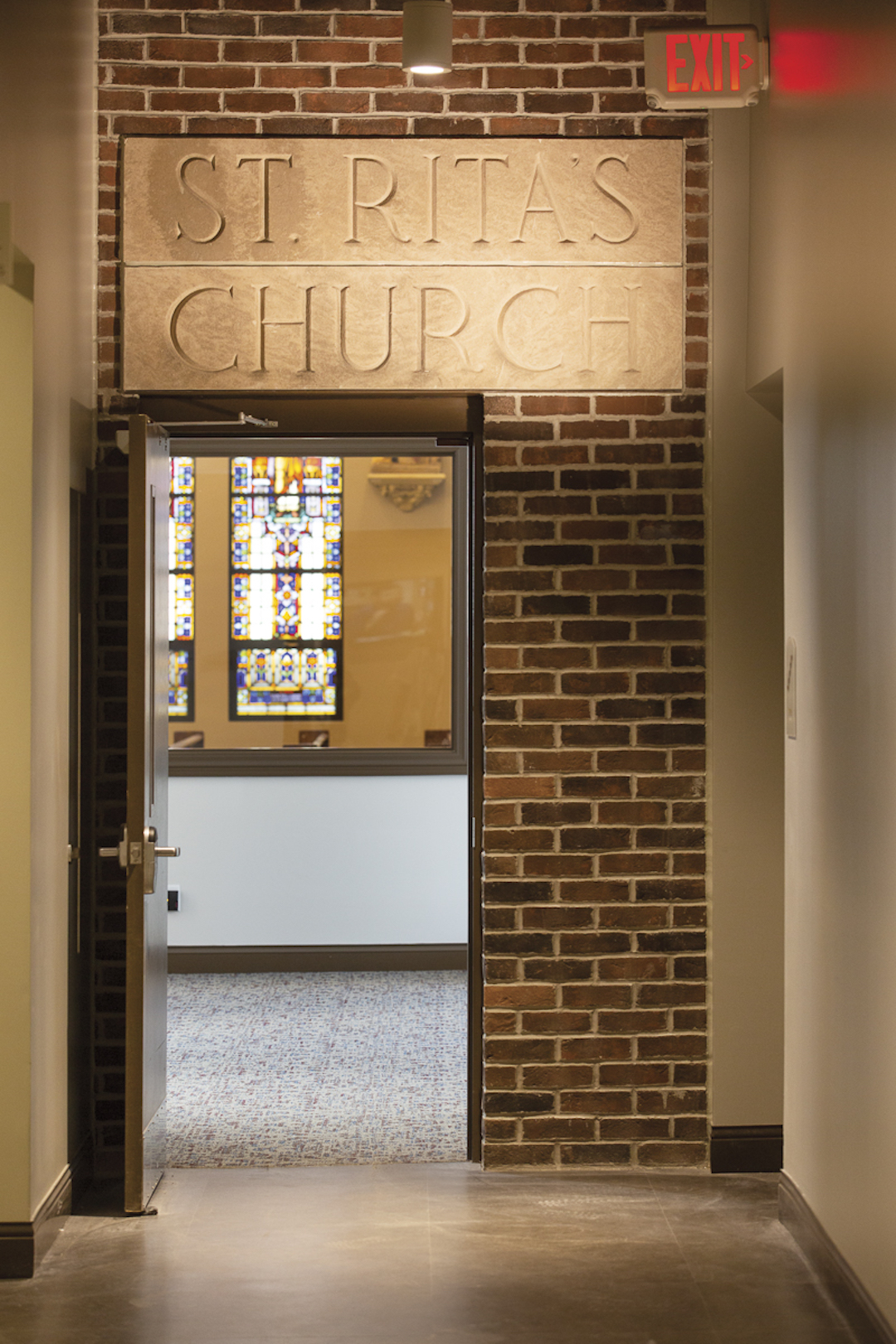
Original stone signage marks the connector from the Commons to St. Rita Chapel. Photo: Direct Supply Aptura
ARCHITECTURAL DESIGN RESPECTS THE NEIGHBORHOOD
The architecture carries forward the familiar feel of both the previous church and the forms and shapes found in the adjacent neighborhood. Setbacks at varied heights maintain a sense of modesty and scale while providing residents with spectacular city views. The interior design incorporates a mix of local textural materials, such as Cream City brick, with vibrant colors and themes found in Italy, specifically Porticello, Sicily.
The image of St. Rita and her yellow rose provided inspiration for details such as floral fabrics and artwork as well as gold elements.
Completed in August 2020, the urban infill project has become a vibrant mixed-use environment with a liturgical setting that offers seniors a unique housing option and supports an active aging lifestyle in the Milwaukee marketplace.
Amenities and services include a private outdoor gathering space, The Piazza, and a casual dining venue with grab- and-go options, The Trattoria. A fitness suite, event and activities room (the “Cannoli Room”), a club room, and a spa and beauty salon add to the mix. Concierge services, controlled guest access, underground parking, and 24-hour on-site maintenance provide stress-free and maintenance-free living.
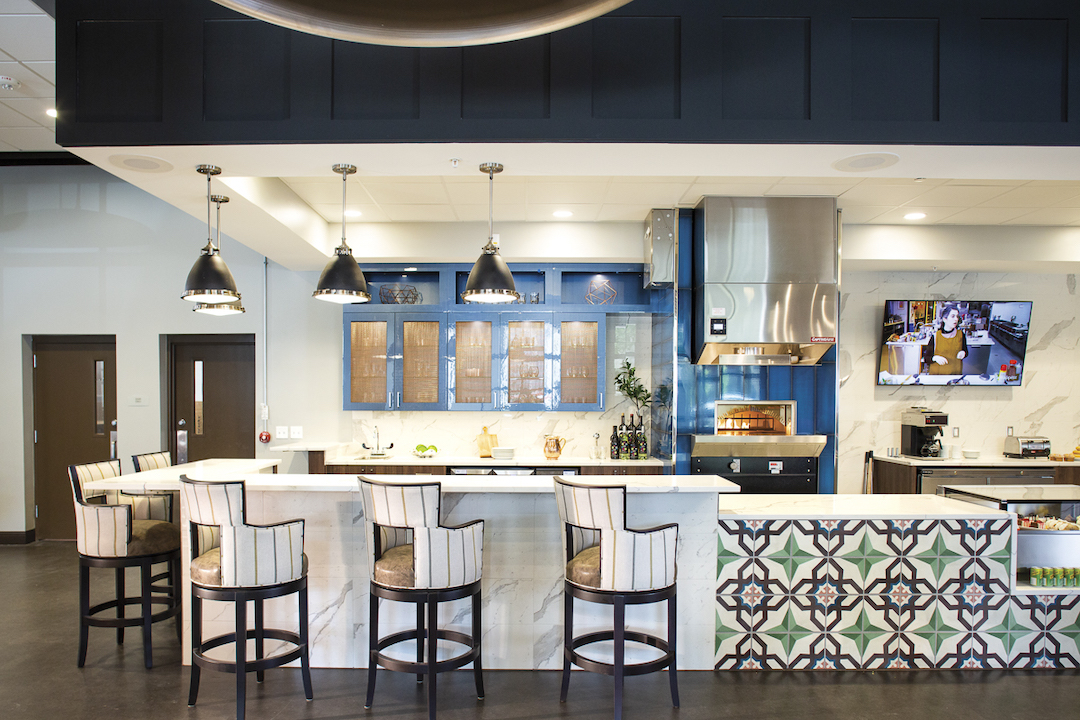
The Trattoria dining room features an authentic pizza oven. Photo: Direct Supply Aptura
LITURGICAL AND ARCHITECTURAL ARTIFACTS PRESERVED
The original bell from Blessed Virgin of Pompeii Church was refurbished to adorn St. Rita Church. The bell was laser scanned so the new bell tower could be accurately designed, ensuring the structure was the correct size and able to support the bell’s weight.
Atop the church sits a restored bronze statue of the archangel Gabriel. Sculpted in 1904 by Italian artist Gaetano Trentanove (1858-1937), the statue is a gift from the Blessed Virgin of Pompeii Church.
St. Rita Square’s location enables residents the opportunity to take advantage of nearby dining, theaters, museums, shopping, entertainment, the Lake Michigan lakefront, and the RiverWalk. It is served by the “Hop,” Milwaukee’s streetcar line.
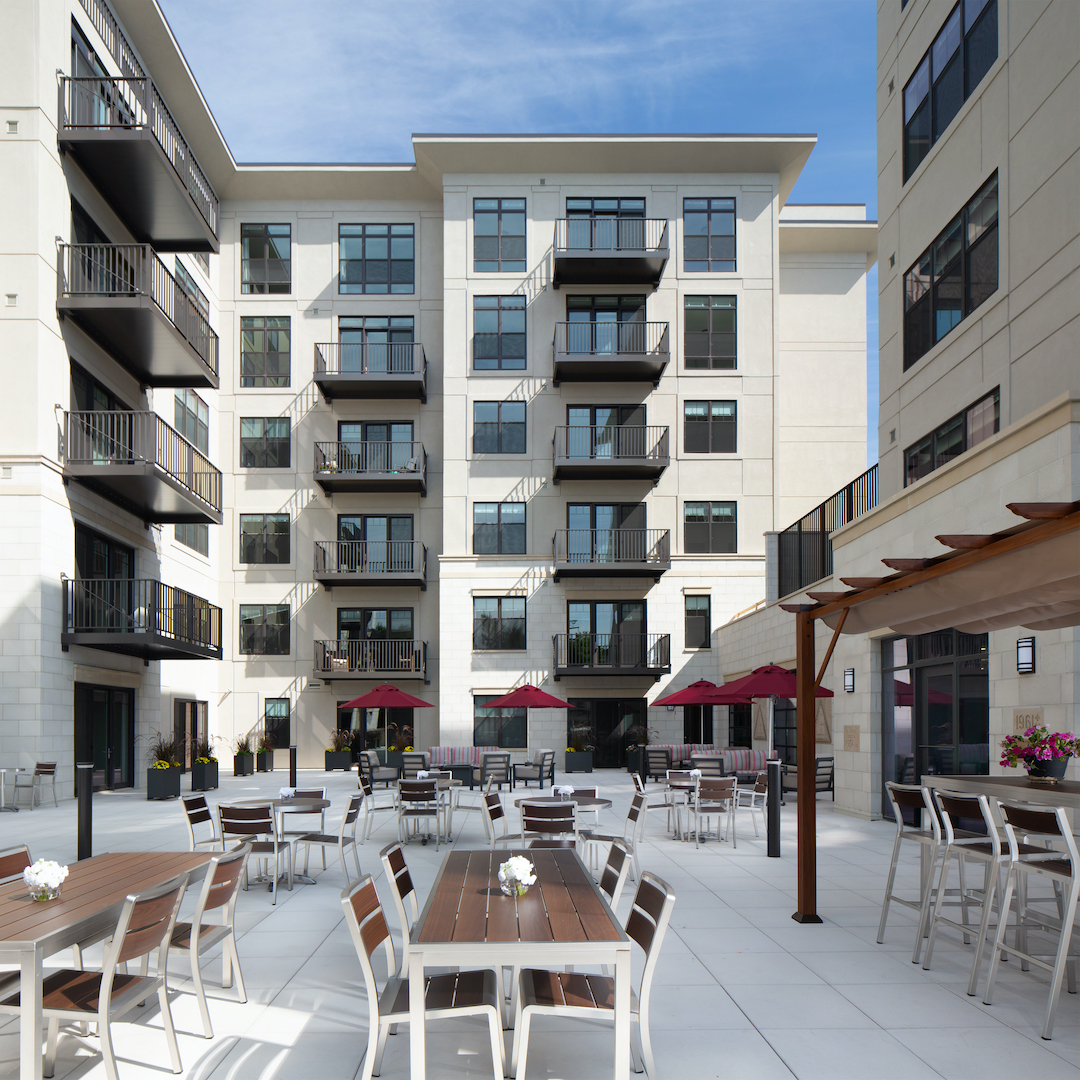
The Piazza at St. Rita Square. Photo: Tricia Shay Photography
INVOLVING THE NEXT GENERATION IN THE WORK
STEM students from Cass Street School, a Milwaukee Public School, joined the team from Pepper Construction on the job site to learn about construction and the technology used in the building process. Students even got to weigh in on the interior design of a senior apartment.
St. Rita Square will maintain connections to the church and neighboring school through various intergenerational and socially responsible programs. Recently, St. Rita Square served 800 spaghetti dinners at a drive-through. The community has hosted monthly Church Tours and neighborhood events, such as Pizza on The Piazza. More than 75% of current residents come from the local neighborhood.
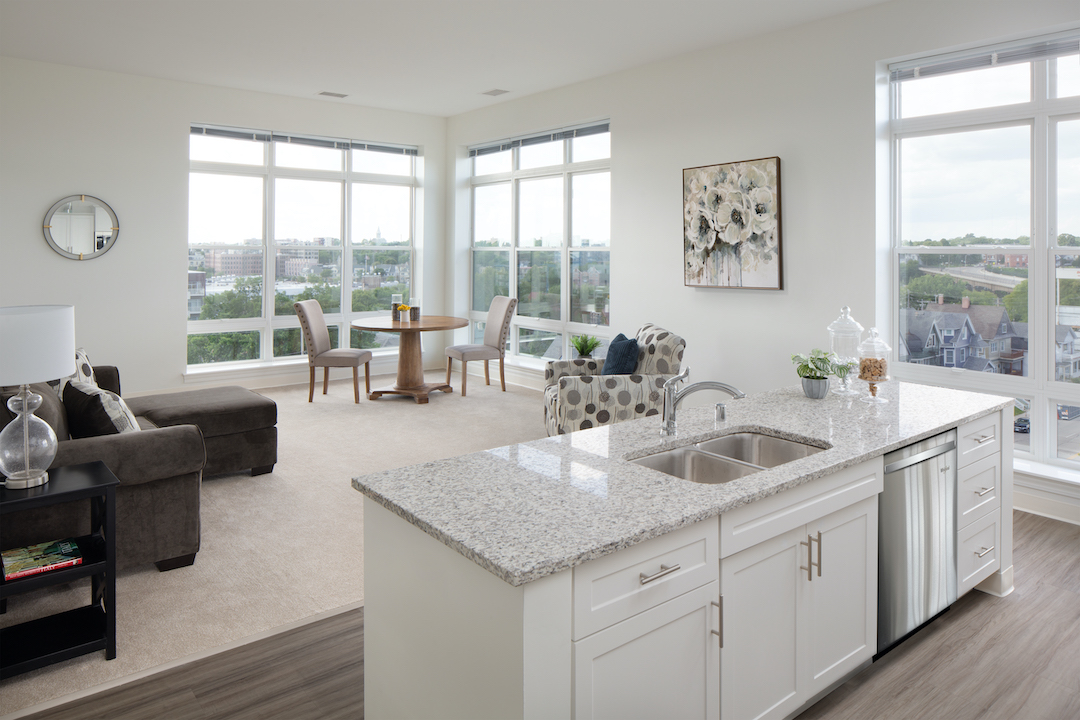
Typical independent living residence unit in St. Rita Square. Photo: Tricia Shay Photography
ST. RITA SQUARE, MILWAUKEE, WIS.
Capri Communities (owner/developer); AG Architecture (architect); Direct Supply Aptura (interior designer); REYN Engineering (structural engineer); and Pepper Construction (general contractor).
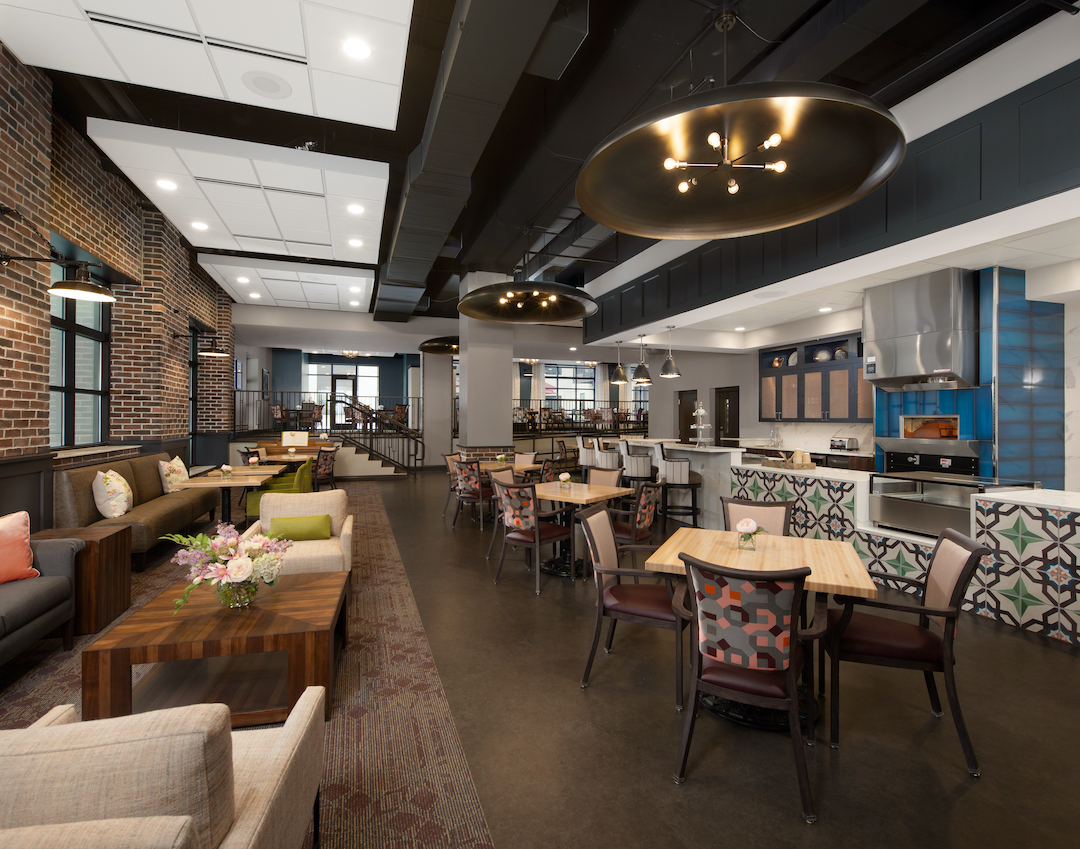
Trattoria dining area. Photo: Tricia Shay Photography
Related Stories
| Nov 7, 2014
Prefab helps Valparaiso student residence project meet an ambitious deadline
Few colleges or universities have embraced prefabrication more wholeheartedly than Valparaiso (Ind.) University. The Lutheran-based institution completed a $27 million residence hall this past summer in which the structural elements were all precast.
| Nov 3, 2014
Novel 'self-climbing' elevator operates during construction of high-rise buildings
The JumpLift system from KONE uses a mobile machine room that moves upward as the construction progresses, speeding construction of tall towers.
| Nov 3, 2014
Cairo's ultra-green mixed-use development will be topped with flowing solar canopy
The solar canopy will shade green rooftop terraces and sky villas atop the nine-story structure.
| Oct 31, 2014
Dubai plans world’s next tallest towers
Emaar Properties has unveiled plans for a new project containing two towers that will top the charts in height, making them the world’s tallest towers once completed.
| Oct 29, 2014
Better guidance for appraising green buildings is steadily emerging
The Appraisal Foundation is striving to improve appraisers’ understanding of green valuation.
| Oct 27, 2014
Studio Gang Architects designs residential tower with exoskeleton-like exterior for Miami
Jeanne Gang's design reinvents the Florida room with shaded, asymmetrical balconies.
| Oct 21, 2014
Passive House concept gains momentum in apartment design
Passive House, an ultra-efficient building standard that originated in Germany, has been used for single-family homes since its inception in 1990. Only recently has the concept made its way into the U.S. commercial buildings market.
| Oct 21, 2014
Perkins Eastman white paper explores state of the senior living industry in the Carolinas
Among the experts interviewed for the white paper, there was a general consensus that the model for continuing-care retirement communities is changing, driven by both the changing consumers and more prevalent global interest on the effects of aging.
| Oct 16, 2014
Perkins+Will white paper examines alternatives to flame retardant building materials
The white paper includes a list of 193 flame retardants, including 29 discovered in building and household products, 50 found in the indoor environment, and 33 in human blood, milk, and tissues.
| Oct 15, 2014
Harvard launches ‘design-centric’ center for green buildings and cities
The impetus behind Harvard's Center for Green Buildings and Cities is what the design school’s dean, Mohsen Mostafavi, describes as a “rapidly urbanizing global economy,” in which cities are building new structures “on a massive scale.”


